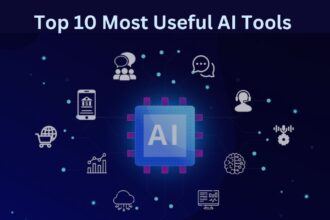
Companies all over the globe and in all industries use data as part of their business processes. Data allows businesses to acquire information about the company, its competitors, and its customers. Leveraging the right data can help businesses grow and flourish in a competitive marketplace. Here’s why data is important in all industries.
Helps Understand Customers
Customers have a variety of choices, which makes the fight with your competition even more difficult. Understanding your customers can help you directly market to them and provide them with the best experiences. Customer information can include:
- Demographics
- Geographics
- Behavioral data
With this information, you can create an accurate buyer persona and learn more about their interests and willingness to make a purchase, whether on your website or in stores. Leading businesses also offer customers products that match their needs most by leveraging data about past purchases and purchasing behavior.
Data extracted from customer feedback surveys can also help you improve the customer experience and learn what they want to see from customer service reps in the future.
Helps Provide Customers with Valuable information
Data can help you provide customers with valuable and accurate information. In some industries, data about the industry is more important. For example, data in the mortgage industry is more prevalent than data in the pet industry for helping drive conversions. Take a mortgage calculator, for example. Using data on interest rates in an area, mortgage lenders and financial institutions can provide an accurate estimate of what someone can expect their mortgage payments to be if they buy a home.
By using valuable data, your company can help communicate, engage, and interact with customers to effortlessly help them down the sales funnel.
Reduces Business Expenses
Cost controlling is always an important part of running a business. After you understand what your customers want and need from your company, you can use data to cut costs and filter out customers that will most likely purchase your products.
Reaching these individuals is costly, but through effective ad targeting, you can help turn any prospect into a customer. If you don’t have a strategy for those you’re advertising to, your advertising efforts can fall on deaf ears. Data analysis can help you cut costs on advertising by allowing you to effectively target customers.
Not only that, but data can help you cut costs in almost every department. Take the accounting department, for example. If you’re using traditional spreadsheets and bank statements to manage your finances, then odds are your employees are spending a lot of time sifting through data. Instead of going through bank statements and highlighting what a company’s profit or expense is, you can use professional tax software that will manage the entire profession for you and provide you with a profit and loss statement.
Using this software doesn’t mean you need to fire your accounting staff, but instead, you’ll be freeing up their time to manage other aspects of your business money, which will be more accurate with the help of data.
Supports Decision Making

With the support of data, you no longer have to make important decisions based on assumptions and very little data. Instead, you can analyze a large amount of data for business intelligence to predict the future of your company and make better decisions.
Data-driven decisions can improve the chances of success while mitigating risks. For example, if you’re introducing a new product, you need to consider all of the activities that take place to launch the product. Using information gained from data can help you learn about your customer base, competitors and get feedback so you can improve the product over time.
Running a business without data in this day and age means you won’t be giving yourself the best opportunity to succeed. If you want to experience growth, you’ll need to master data that can lead to your business’ success.
Solves Problems
Data can help you understand issues your company has, such as a slow month of sales or a bad marketing campaign. Tracking data from multiple business processes can help you uncover problems in performance, so you can learn exactly where things went wrong. For example, if you run a Facebook ads campaign, you can get data on how it performed, which includes:
- Number of clicks
- Cost per click
- Total cost
- Number of leads/sales
- Cost per lead
- Impressions
- Reach
- And more
If your ad campaign performed poorly, you might not be able to pinpoint exactly where things broke down, but you can use data to help you test other campaigns and determine what works best. With any digital ad campaign, you can run A/B campaigns that allow you to test elements of your ads to see which gets the best results based on the data received. From there, you can build upon your successful campaigns and drop the unsuccessful ones to reduce the chances of wasting money.
Helps You Understand Performance
Data can help you understand the performance of more than just your advertising campaigns as well. Consider sports teams. Every football team collects data on players to improve their overall team performance. In the case of your business, you can collect data on your employees to make your teams better, more productive, and more efficient.
Collecting data on your employees and teams can help you see how well they are performing so you know your money is well spent. For example, if you have one sales rep who makes more sales than anyone else, you can delve into the data to get an understanding of what this person is doing differently than everyone else. You may find they’re closing deals at lower rates.
Even though this individual may be closing more deals, they may be getting you less revenue than a sales rep who gets fewer leads but closes deals at higher rates. This will tell you more about your employees and how they spend their time versus what you will see in person. In this case, you’ll think your top-performing sales rep is the best, but in reality, they are hurting your sales.
Improves Processes
Data can be utilized to help you understand bottlenecks in your processes so you can improve them and reduce wasted time and money. Waste depletes resources, consumes unnecessary time, and impacts your bottom line.
For example, poor marketing decisions can be a huge waste of resources. With data showing you which marketing channels perform best, you can see which opportunities provide you with the greatest ROI so you can focus on those. You can also take a deep dive into other channels to understand why they’re not performing and improve their performance. By leveraging data, you can take your worst advertising campaigns and turn them into your biggest moneymakers.
Use Data Daily
Data can help in all aspects of your business, but you must use it daily. There’s no point measuring things randomly when you can measure everything from employee performance to marketing campaigns and use data to create better relationships with vendors, clients, and customers.
Matt Casadona
Matt Casadona has a Bachelor of Science in Business Administration, with a concentration in Marketing and a minor in Psychology. Matt is passionate about marketing and business strategy and enjoys San Diego life, traveling, and music.









